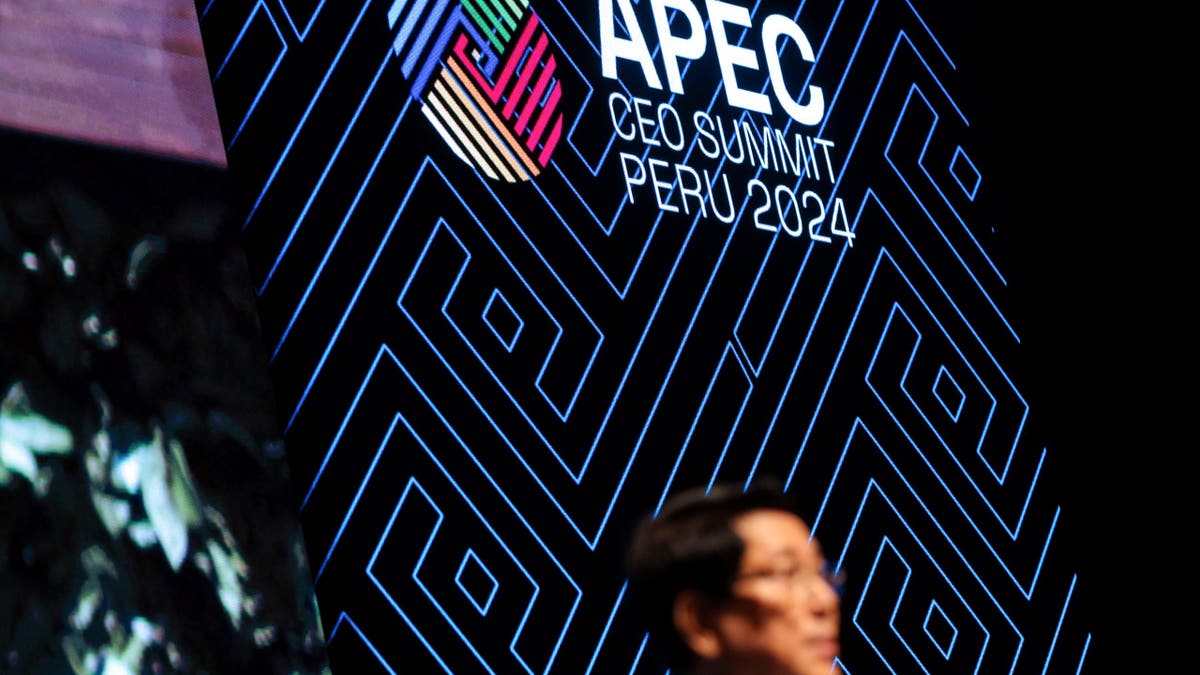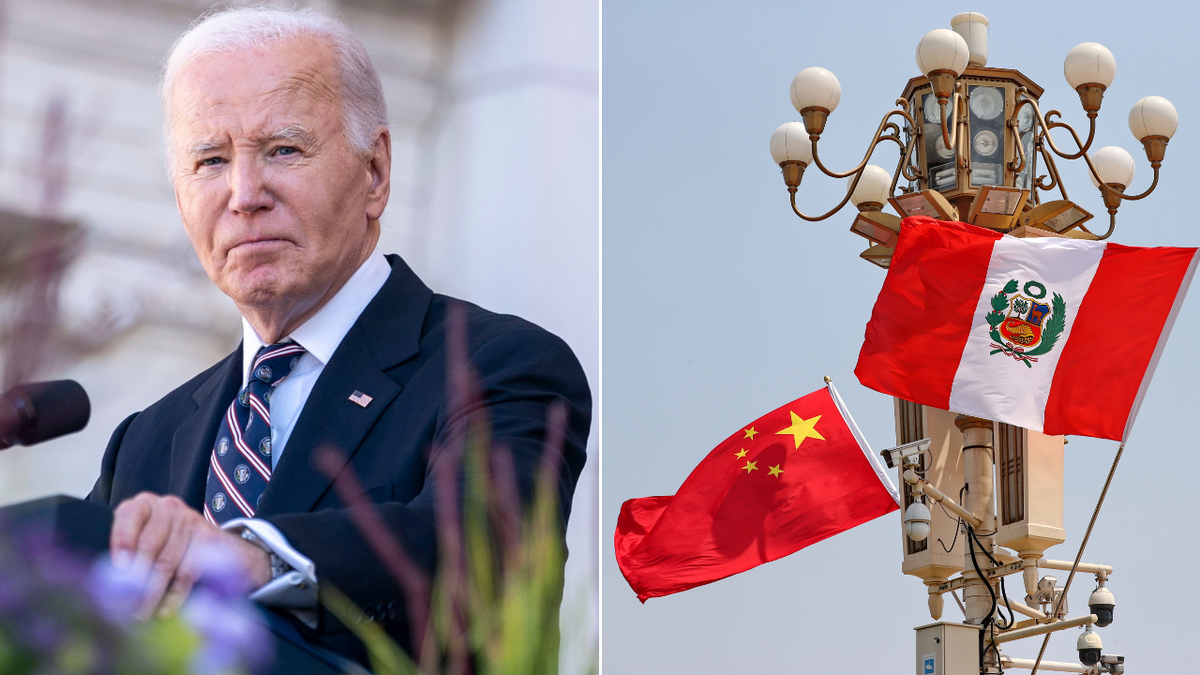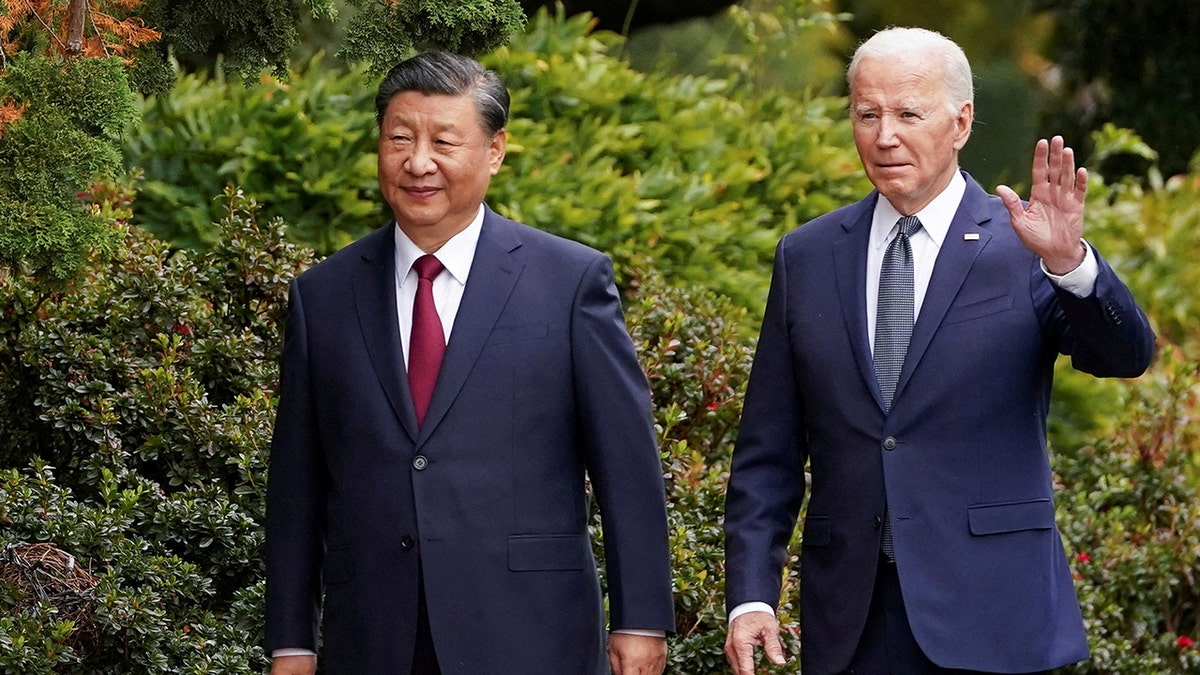Biden concludes foreign diplomacy in region where US overshadowed by China

[ad_1]
In what could potentially be President Biden’s last foreign diplomacy trip, he will soon head to South America to meet with global leaders, including Chinese President Xi Jinping.
Biden will first travel to Lima, Peru, for the Asia-Pacific Economic Cooperation summit, where he is slated to meet with Xi, possibly their final encounter as heads of state, according to a senior administration official.
Biden’s attendance at the summit is expected to be followed by a stop in Brazil early next week, where the Group of 20 summit, a gathering of the nation’s foremost economic powers, is being held. While in Brazil, Biden will also become the first sitting U.S. president to make a visit to spots in the Amazon rainforest.

Luong Cuong, Vietnam’s president, speaks during the Asia-Pacific Economic Cooperation CEO Summit in Lima, Peru, on Nov. 14, 2024. (Getty Images)
Biden’s foreign diplomacy curtain call in South America comes as the U.S.’s influence in the region has been getting overshadowed by China’s, experts have argued.
GOP REP SOUNDS ALARM ON GROWING CHINESE INFLUENCE IN CENTRAL AND SOUTH AMERICA
The U.S.’s contemporary policy toward the region has shifted over the last century, from focusing on issues related to the political stability of the region to now on issues of illegal immigration and narcotics and how they impact the country domestically. Meanwhile, China has been taking advantage of the holes left open by the U.S. due to this shift in priorities.
For example, South American countries have turned to China when the U.S. has failed to establish trade agreements with them, the Wall Street Journal reported. Near the start of the Biden administration, Uruguay and Ecuador’s attempts to develop free-trade agreements with the U.S. were stymied, so they turned to China. While Ecuador’s priority is to establish a trade agreement with the U.S., its ambassador said the country is “prioritizing alternatives” while the U.S. transitions to the Trump administration.

The national flags of Peru and China flutter at Tian’anmen Square on June 28, 2024, in Beijing. (Getty Images)
The U.S. still holds more trade agreements in South America than China, but the communist nation has expanded its influence in other ways. Beijing has invested in parts of South America with projects like ports in places such as Peru that trade in Chinese currency, and satellites in Las Lajas, Argentina. China has also established mineral and foodstuff purchases in the region, seen potentially as an effort to fortify resources ahead of any conflict in the South China Sea in light of the increased global tensions surrounding Taiwan.
Meanwhile, the U.S. International Development Finance Corp., a federal agency that directs investments in developing countries, invested $30 million in funding for a critical mineral mine in Brazil. However, under the investment’s current mandate, all Latin American countries, except Bolivia, Honduras, Nicaragua and Haiti, are considered to be too wealthy to benefit from the investment.
Under President-elect Donald Trump, relations with South America could continue to worsen as his threats of tariffs have create concern among global trade leaders.

President Biden and Chinese President Xi Jinping (Reuters/Kevin Lamarque/File)
Biden and Xi’s meeting while in Peru will be the pair’s third in-person meeting since Biden took office.
CLICK HERE TO GET THE FOX NEWS APP
According to a senior administration official, the two are expected to discuss a range of issues covering military-to-military communications, human rights, fentanyl, artifical intelligence, climate change, cybersecurity, Taiwan and the incoming Trump administration.
The White House did not respond to Fox News Digital’s request for comment.
[ad_2]
Source link





